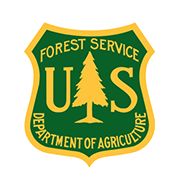Single Publication
Could not determine your location.
Pile Burning to Begin as Snow Accumulates
Arapaho and Roosevelt National Forests Pile Burning
Publication Type: News 05/18/2023
FORT COLLINS, Colo. (Nov. 29, 2022) – U.S. Forest Service firefighters plan to start work on seasonal slash pile burning this fall, winter and spring as weather and fuel conditions allow on the Arapaho and Roosevelt National Forests.
Throughout the year, fuels reduction programs across the forest are ongoing, improving forest health through both hand and mechanical tree cutting. During this process larger logs are taken to market and smaller limbs, sapling and brush are piled together to dry for later burning. When the weather changes in the fall, winter and spring, and more moisture is present in the ecosystem, conditions become favorable for burning these piles. During this time, firefighters return to ignite piles that have been left to cure from thinning projects.
Piles are only ignited when fuels managers are confident that the project can be undertaken safely with considerations to current fuel and snow conditions, wind, temperature, available staffing, and smoke dispersal. These conditions are monitored on an on-going basis both before burning begins and after ignitions are complete to ensure the ignited piles remain within planned boundaries.
Smoke, flames, and glowing embers are often visible, and are a normal part of pile burning operations. This can be visible throughout the night. Moisture, namely snow, helps contain the piles and firefighters monitor the area during and after the burn. Monitoring continues until the piles are considered out. Public and firefighter safety is always the number-one priority in burning operations.
To see a list of all the areas where pile burning may take place, please check inciweb at https://inciweb.nwcg.gov/incident-information/coarf-arapaho-roosevelt-national-forests-pile-burning. Locations where burning is most likely to begin later this week include areas on the Sulphur Ranger District and the northwest portion of the Canyon Lakes Ranger District in the Roach area and northwest of Red Feather Lakes.
Prescribed fire smoke may affect your health. More information about smoke impacts is available at https://www.colorado.gov/pacific/cdphe/wood-smoke-and-health.

 InciWeb
InciWeb